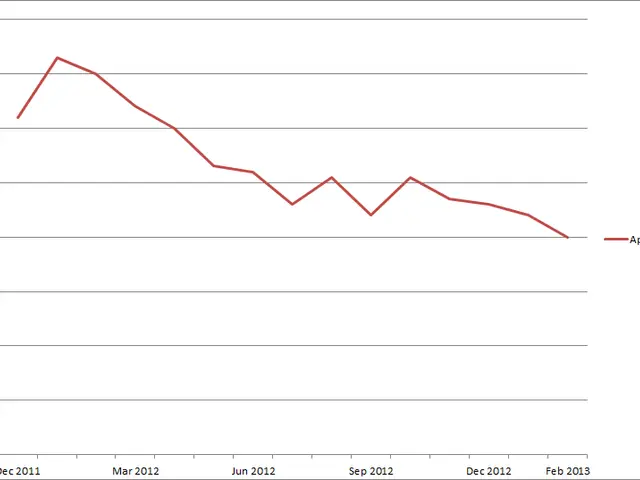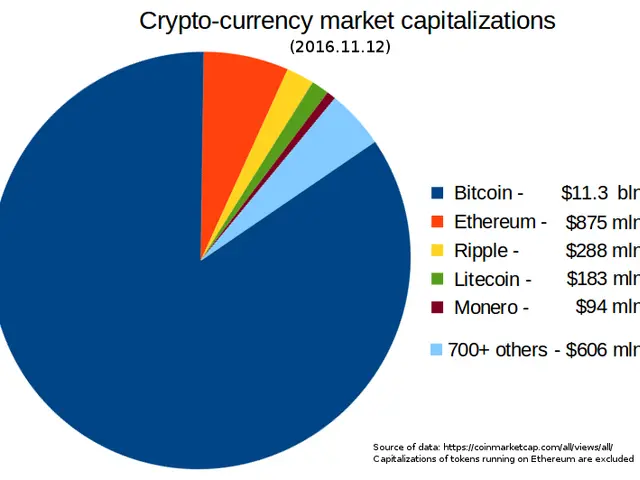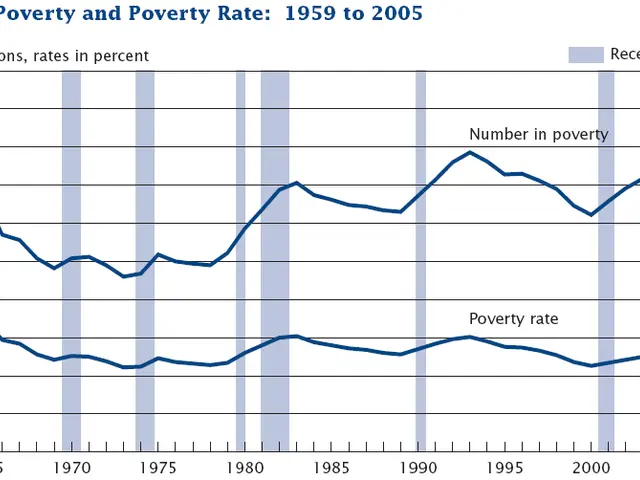Steady Inflation Rates Persist, Leaving Families Facing Financial Hardships
In January 2023, the UK faced a high inflation rate of around 10%, causing substantial economic pressures, particularly for low-income families. This inflation, mainly driven by costs in the energy and food sectors, led to an escalating cost-of-living crisis that hit low-income households hardest.
The high inflation rate caused a significant increase in energy bills, with the annual cost for many households soaring from £1,277 to over £3,500 after 2022 due to energy price caps[4]. Low-income families, who allocate a larger portion of their income to housing and energy costs, were severely strained by this inflation.
Food inflation was also significant, with prices rising sharply in key staples, reducing low-income families' real purchasing power for essentials[1][4]. Despite a slight decrease in food prices later in 2023, the impact on living standards was still notable, with many households, particularly low-income ones, experiencing the biggest declines in living standards in decades during 2022-2023[4].
The Bank of England predicted a small rise in inflation last month, while economists expected a rise to 4.2%. However, the inflation rate remained at 4% in January, according to the Office of National Statistics (ONS)[3]. Despite this, the high inflation has had a lasting impact on the economy, particularly on low-income families who have had to make difficult choices between necessities like food, heating, and shoes[5].
Various charities across England have expressed concern about the news, stating that it will not be well-received by many low-income families[6]. Peter Matejic, chief analyst at the Joseph Rowntree Foundation, further emphasised the plight of low-income families, stating that they will have to make difficult choices between necessities[7].
However, the high inflation figures may not be all bad news for those with vested interests in real estate debt. Daniel Austin, CEO and co-founder at ASK Partners, claims that really high inflation figures could help boost the property market[2]. Property has long been considered a good hedge against inflation, and Austin believes that those looking to invest in property are keeping a close eye on upcoming inflation and interest rate decisions[2].
Looking ahead, inflation is expected to fall to around 2% in a matter of months[1]. This news is a relief for many, as it may lead to a decrease in mortgage rates. However, around 2.3 million households are expected to face higher mortgage rates in 2024, with the average monthly mortgage repayment increase for these households being £240[1].
In conclusion, the high inflation rate in January 2023 has contributed to escalating living costs that disproportionately impacted low-income families in the UK, exacerbating economic hardship during the ongoing cost of living crisis. While there is hope for a decrease in inflation in the near future, the impact on low-income families remains a significant concern.
References:
- BBC News (2023) Bank of England keeps rates on hold at 5.25% [online] Available at: https://www.bbc.co.uk/news/business-64186392
- ASK Partners (2023) Daniel Austin: Inflation is good for property [online] Available at: https://www.askpartners.co.uk/news/daniel-austin-inflation-is-good-for-property/
- Reuters (2023) UK inflation remains at 4% in January [online] Available at: https://www.reuters.com/business/uk-inflation-remains-4-january-2023-02-17/
- Joseph Rowntree Foundation (2023) The impact of the cost of living crisis on low-income families [online] Available at: https://www.jrf.org.uk/report/impact-cost-living-crisis-low-income-families
- Peter Matejic (2023) Universal Credit needs to reflect the actual cost of essentials [online] Available at: https://www.theguardian.com/commentisfree/2023/feb/01/universal-credit-cost-of-living-crisis-benefits
- Charities warn of impact of inflation on low-income families [online] Available at: https://www.bbc.co.uk/news/uk-64186637
- Energy bills rise but food prices fall [online] Available at: https://www.bbc.co.uk/news/business-64186392








